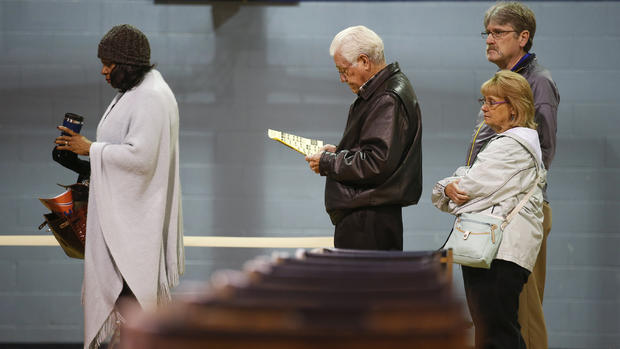The governing class: What the GOP gubernatorial races mean
This article originally appeared on Slate.
For the last several years, as the GOP brand in Washington has remained weak, Republican governors have tried to distance themselves from their Washington cousins. The governors were out in the states making decisions that meant something to their constituents while the Beltway Republicans were shuttering down the government.
One conservative PAC involved in this year's senate races said that when it conducted polls and focus groups about government incompetence, they saw the predictable evidence of voter anger with President Obama's handling of ISIS, the Ebola crisis, and launching healthcare.gov. But they also found something else: People quickly brought up the government shutdown, something they pinned on the GOP.
While the party that controls the White House is usually defined by the presidency, the party in opposition must go to some pain to define itself by its most appealing elements--since its image is most up for grabs. Is the Republican party the party of Sen. Ted Cruz or Florida Gov. Rick Scott? Maine Gov. Paul LePage or Sen. Rand Paul?
Tuesday's election results for GOP governors will be a better signal about the public's appetite for conservative ideas than the senate races because those contests have largely focused on President Obama rather than policies that can affect people's lives. In gubernatorial races, however, voters are evaluating how governors work with legislatures and enact policy that either does or doesn't work. Senators debate issues that may or may not affect people's lives. If governors don't enact laws that deal with real problems, they get turned out of office fast.
Drawing a conclusion will be more complicated than simply waiting to see if Republican governors are re-elected. If Gov. Scott Walker wins in Wisconsin and Gov. Sam Brownback holds on in Kansas, they will both be able to argue that they survived even after taking political risks to govern as proud conservatives. If, on the other hand Ohio Gov. John Kasich cruises to a big victory, that might show something different. Kasich, and Gov. Rick Snyder of Michigan, opted to take the federal Medicaid money as a part of the Affordable Care Act. Doing so was once considered heresy in conservative ranks.
But now people like Newt Gingrich point to Kasich as a model for expanding the Republican Party with black voters. In Gingrich's election-eve predictions, he cites that Kasich won the endorsement of a black newspaper. The Ohio governor won that endorsement because he took the Medicaid money. Almost all of the vulnerable Republican governors this cycle did not. Will their victories or defeats render a verdict on that decision?
If Kasich and Walker both win, it might suggest that the Republican brand is flexible enough to accommodate both styles. Then it will be up to a national figure to explain how a Republican could do that in the White House. Both of these men may want to offer their theory for governing.
